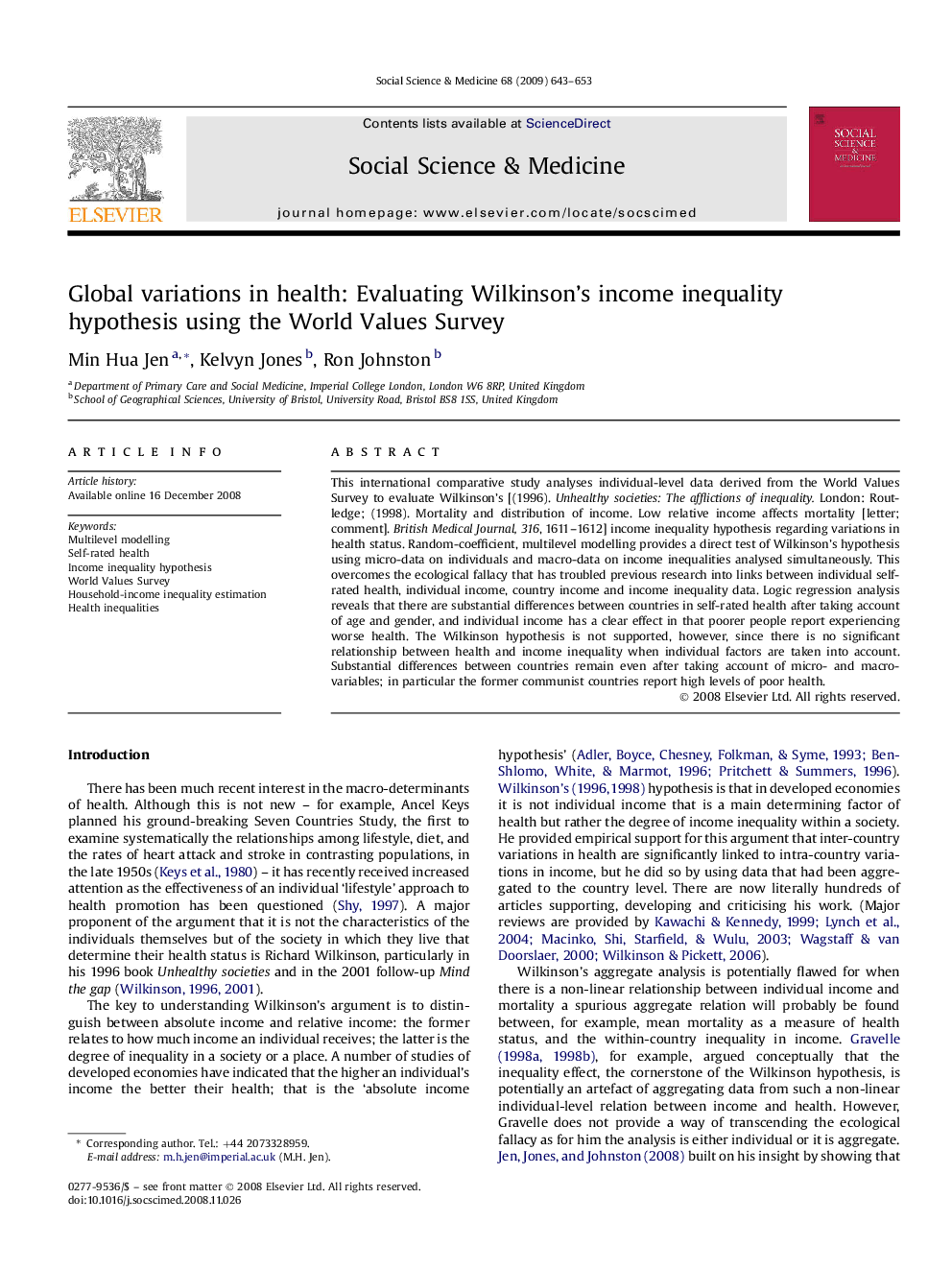| Article ID | Journal | Published Year | Pages | File Type |
|---|---|---|---|---|
| 953933 | Social Science & Medicine | 2009 | 11 Pages |
This international comparative study analyses individual-level data derived from the World Values Survey to evaluate Wilkinson's [(1996). Unhealthy societies: The afflictions of inequality. London: Routledge; (1998). Mortality and distribution of income. Low relative income affects mortality [letter; comment]. British Medical Journal, 316, 1611–1612] income inequality hypothesis regarding variations in health status. Random-coefficient, multilevel modelling provides a direct test of Wilkinson's hypothesis using micro-data on individuals and macro-data on income inequalities analysed simultaneously. This overcomes the ecological fallacy that has troubled previous research into links between individual self-rated health, individual income, country income and income inequality data. Logic regression analysis reveals that there are substantial differences between countries in self-rated health after taking account of age and gender, and individual income has a clear effect in that poorer people report experiencing worse health. The Wilkinson hypothesis is not supported, however, since there is no significant relationship between health and income inequality when individual factors are taken into account. Substantial differences between countries remain even after taking account of micro- and macro-variables; in particular the former communist countries report high levels of poor health.
